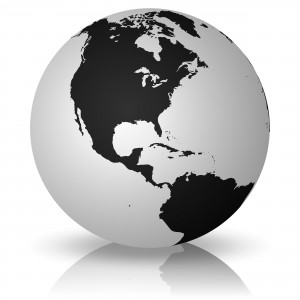The Pristine Myth

Learn more about what a fascinating place pre-Columbus America was, then read the (regrettably brief) interview with Charles Mann, the author of 1491:
When I went to high school, in the 1970s, I was taught that Indians came to the Americas across the Bering Strait about 12,000 years ago, that they lived for the most part in small, isolated groups, and that they had so little impact on their environment that even after millennia of habitation it remained mostly wilderness. My son picked up the same ideas at his schools. One way to summarize the views of people like Erickson and Balée would be to say that in their opinion this picture of Indian life is wrong in almost every aspect. Indians were here far longer than previously thought, these researchers believe, and in much greater numbers. And they were so successful at imposing their will on the landscape that in 1492 Columbus set foot in a hemisphere thoroughly dominated by humankind.
Let’s talk for a minute about terminology. In Canada, we technically refer to the descendants of the individuals referenced in the above article as “First Nations people,” which tends to work, while in practice we often say “Indian,” which, although extremely etymologically unsound, is certainly the noun most widely used by “Indians” themselves as a self-descriptor. The New York Times has adopted “Native Americans” as their term of choice, which, although heavily under-used by actual Native Americans, appears to be the innocuous and academia-friendly noun of our time, along with, occasionally, either “American Indian” or “Amerindian.” On a related note, I’ve never heard a Canadian say “Eskimo,” as we consider it a mild slur, preferring “Inuit,” but since “Eskimo” is the only term meant to encompass BOTH the Inuit and the Yupik people, it does exist for a reason.
What do you aim for, in this situation? Obviously “First Nations” is marginally more correct than “Native American,” considering that all peoples arrived in the Americas from somewhere else, but is sheer historical/archeological correctness the most important standard? If you’re a Native American, how do you self-identify? How did your parents self-identify? Are either of those names different from how you would like others, say, the New York Times to refer to you?